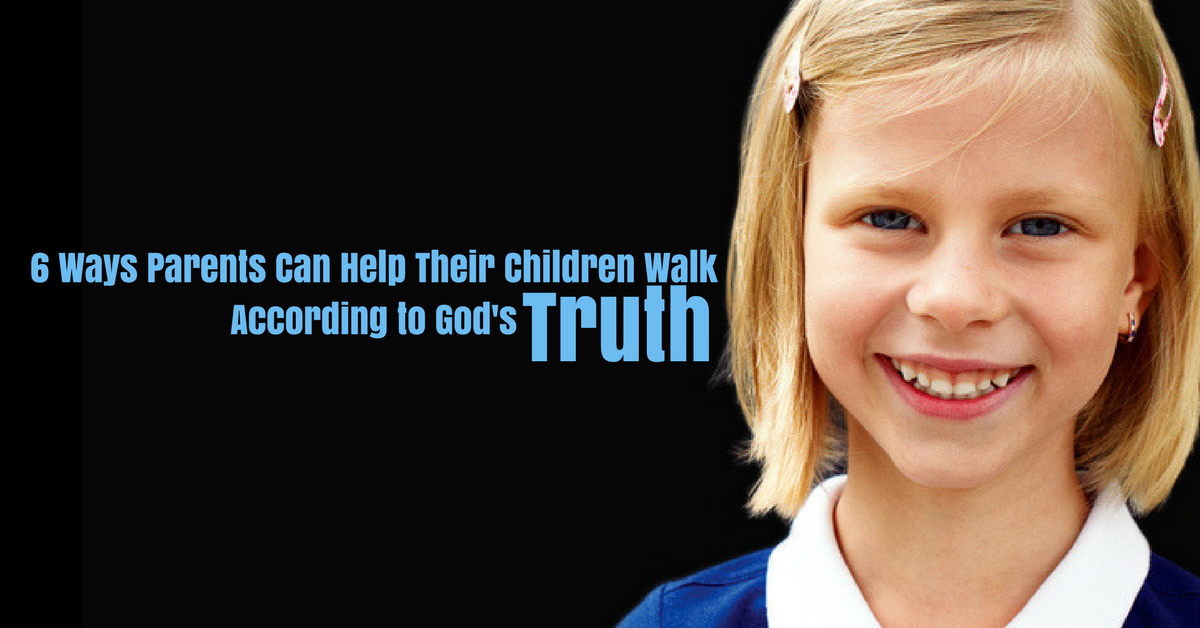|
By Dr. Josh Mulvihill BIBLE-CENTERED LIVING is supremely important in the lives of our children. Parents, grandparents, and educators have the responsibility to teach children to love the Bible and live according to God’s Word. Most parents teach children to ride a bike, maintain an automobile, and manage money, yet few parents train children to daily read and meditate on God’s Word. As a pastor, I encounter large numbers of Christians who have never been taught how to have a quiet time and do not read the Bible. As a result, biblical illiteracy is high, moral relativism is common, and doctrinal confusion is widespread. Open God’s Word and be blessed by truth and beauty, get captured by its depths and heights, and be captivated by the glorious God in its pages. The joyful experience of reading God’s Word is where great parenting and teaching begins. God tells us to “daily meditate” on His Word (Ps 1:2) as well as “hide God’s Word in our heart” (Ps 119:11). These commands apply to adults and children. Children cannot live according to God’s ways if they do not know God’s Words. Here are six ways to help your children develop a love for God’s Word. 1. Develop the habit of reading the Bible Your first priority is to spend time daily reading God’s Word. Deuteronomy 6:6-7 states, “These commandments that I give you today are to be on your hearts. Impress them on your children.” God’s progression in this passage is important. God’s Word is to be on your heart, and then it can be taught to children. Empty vessels have nothing to give. You cannot pass on to children what you do not have. You will not pass on a passion for Scripture if you do not treasure it your- self. You cannot train children to develop the skills to study God’s Word if you have not cultivated it in your own life. If you are a Christian educator, make sure that doing God’s work does not inhibit your time in God’s Word. Spending time daily in God’s Word needs to be your highest priority. 2. Practice family worship Family worship is the means of introducing children to the truths of Scripture and preparing children for the Christian life. The practice consists of reading Scripture as a family, prayer, and praise to God, often through music. God has given the father the role of spiritual leader, but both mother and father are to share in the biblical instruction of children (Eph 6:4; Prov 1:8). Consider a few practical thoughts: • Read the Bible, not someone’s thoughts about the Bible. Devotionals are helpful, but the primary source should be the Bible. My wife and I often read Psalms and Prov- erbs to our children. We choose passages based on what we are strategically teaching them. Proverbs is the one book of the Bible written to young people, and it should receive heavy emphasis in your home or classroom. • Read the entire Bible to children. The pattern of Scrip- ture is to teach children the deep truths of Scripture. Children were not excused when difficult topics were covered in the Colossian or Ephesian church. Children were present to be told to obey parents; and therefore, were taught everything contained in these two books. • Read briefly. Remember, they are children. The younger a child is, the shorter their attention span will be. Don’t expect your child to study the Bible like an adult. Try to keep your family reading concise and to the point, but meaningful. Ten minutes is a good amount of time to begin. A great resource is The Long Story Short by Marty Machowski. • Include children in reading and discussion. Your goal is to explain the Bible passage clearly and biblically, engage children in the process, and help them apply God’s truth to life. If family worship is not a normal habit in your home, do not be discouraged by the child who complains, does not answer questions, or tries to derail the time. Once the child learns that you are serious about reading the Bible on a regular basis, they will get into the routine of listening and responding. 3. Teach children core doctrines of Christianity Young people are unlikely to remain faithful to a faith they do not understand and cannot defend. Parents and Christian schools should teach children of all ages the core doctrines of the Christian faith with a zeal and consistency that follows the pattern of the Bible. In 2 Timothy 3:15 we read of Timothy, “From childhood you have been acquainted with the sacred writings, which are able to make you wise for salvation through faith in Christ Jesus.” Psalm 71:17 says, “Since my youth, O God, you have taught me, and to this day I declare your marvelous deeds.” The pattern of Scripture is for children of all ages to be taught the core truths of the Bible so that they will be firmly rooted in Christ and established in their faith (Col 2:7). The Bible clearly states what will happen to children when they are not well grounded in God’s Word. Here are three examples: 1. Children are taken captive by man’s ideas and deceived by human traditions (Col 2:8). 2. Children become rebellious and live a godless, unfaith- ful life (Ps 78:8). 3. Children grow up not knowing God or His great works (Judg 2:10). The following topics should be taught to children of all ages: The Gospel The gospel is the good news because it addresses our most serious problem. The gospel summarized: we have rebelled against a holy God that created us. God acted in Jesus to save us, and we take hold of that salvation by repentance of sin through faith in Jesus. Concerning the gospel, you should have a threefold aim that your children: (1) clearly understand it, (2) concisely explain it, and (3) confidently proclaim it. Big Picture of the Bible The Bible is not a random collection of people or events. It is a unified whole with one main storyline pointing to, revolving around, and fulfilled in Jesus. There are four major parts of the Bible: creation (Gen 1-2), fall (Gen 3), salva- tion (Gen 4 - Rev 20), and re-creation (Rev 21-22). As you read through the Old Testament, help children to see how it points to Jesus and His covenant of salvation. Jesus himself did this, “And beginning with Moses and with all the prophets, he explained to them the things concerning himself in all the Scriptures” (Lk 24:27). The primary aim of the Bible is to glorify God, and this happens in salvation and judgment found on every page of the Bible. Read and reread the stories of the Bible to your children with this in mind. Familiarize them with the main stories, people, and events of the Bible, but not in a way that detaches them from the overall storyline of Scripture. We should call our children to obedience to Jesus Christ and can use the heroes of the faith as models to imitate, but let our teaching not dissolve into moralistic instruction separated from the gospel of Jesus or the glory of God. “Children cannot live according to God’s ways if they do not know God’s Words.” Doctrine Doctrine is simply a word to describe what the Bible teaches. Paul challenges young Timothy to “watch your life and your doctrine closely” (1 Tim 4:16). Every child needs to under- stand the core doctrines of the Christian faith to grow into a man or woman with convictions to follow God. The two most critical doctrines for children to learn center on the Word of God and the Son of God. It is a mark of successful education to teach children the inerrancy, authority, and sufficiency of the Bible. Great schools train children to embrace the supremacy, exclusivity, deity, and Lordship of Jesus Christ. In addition, we must repeatedly, with greater depth as children age, teach topics such as: creation to counter evolu- tion, God’s design for marriage between one man and one woman to counter homosexuality, the reality of heaven and hell to counter the claim that death is the end of all existence, the atoning work of Jesus to counter the claim that all reli- gions lead to the same God, the Trinity, and the character of God, to name a few. 4. Give your child a Bible When my mother was dying of ALS, she asked me what I wanted of her possessions to remember her by. My mom had expensive jewelry, money, and things with worldly value, but the thing I wanted most was her Bible. My mom’s Bible is the physical expression of the greatest gift she ever gave me: a love for God’s Word. Her Bible is tattered and torn. Its pages are yellow and marked up. It was well used and well loved. I want you to give this same gift to your children. Purchase a high-quality leather Bible and personalize it for each child. Choose a full text, readable version that a child can use as they grow older. A good age to give this to a child is during their middle elementary years, between ages 8 and 10. Plan a special ceremony or meal around this event. Before giving the Bible to your child, underline or highlight passag- es you want to emphasize. Make notations in the margins, and write short notes of encouragement and affirmation. May your gift help your child love God’s Word and echo the Psalmist, “How sweet are your words to my taste, sweeter than honey” (Ps 119:103). 5. Teach children how to study the Bible During the early years of a child’s life, the parent is the one to feed the child spiritually. But gradually, this responsibility should be shifted to the child. For this to happen, parents must teach their child how to read the Bible. Children should be taught basic Bible study methods which include observation, interpretation, and application. This is known as inductive Bible study. Observation: “What does this passage say?” Observation is taking a close look at what is going on in the passage of Scripture. Correct observations are key to understanding the meaning of the text. We need to read the Bible thoroughly, slowly, and prayerfully to understand what God is saying. Interpretation: “What does this mean?” Interpretation is trying to understand the intent of the author. Interpretation is affected by the culture in which the author wrote, the biases we bring to the text, and the context in which the passage is found. We cannot understand a verse without understanding a chapter. We cannot understand a chapter without understanding the entire book. We should teach children to interpret Scripture with Scripture and to consult resources such as commentaries to best understand a passage. Application: “What does this passage require of me?” We come to the Bible for transformation, not simply infor- mation. God’s Word has the authority to tell us how to live. We train children to obey all God’s commands, not just the ones they like. Teach children that obedience is essential, not optional. 6. Provide Bible study tools for children Every child should understand how to use the following Bible study tools, which make great gifts. Commentaries A commentary simply explains the meaning and applica- tion of Scripture. Scholars spend great amounts of time studying the Bible. They write about their discoveries in commentaries. Scripture can be difficult to understand, so good commentaries are helpful for a young person to have. Bible Dictionary A Bible dictionary lists items by theme. Using this tool, young people will be taught to look up people, places, and themes of Scripture. Bible dictionaries help a person quickly learn about important and obscure people of the Bible or the meaning of a word. Children can also look up themes such as faith and learn more about the topic. Concordance A concordance is a catalog of the Bible. It lists every word by alphabetical order and tells where to find each word by listing references. It is extremely helpful if a young person wants to study a specific word or remembers a word in a passage but cannot remember the reference. Bible Atlas A Bible atlas will teach about the geography of the Bible, the location of cities, and the whereabouts of important happenings. For example, there is an Old Testament Jericho and a New Testament Jericho. This is helpful to understand. The Scripture writers purposefully write that Jesus walked up to a location. This is a geographical reference. It is helpful to know where a city is located to better understand a text. If you want to significantly influence the faith of children, then make it a priority to teach them to study and memorize the Bible. It is a lasting legacy to train a child to develop the spiritual habit of Scripture reading. This article originally appeared in The Renewanation Review® magazine. All Rights Reserved. Reprinted here by permission of Renewanation. For more information regarding Renewanation, visit renewanation.org. Other information you may find helpful:
16 Comments
Diana Jorgenson
1/14/2019 05:13:12 am
I have been trying to teach an adult with mental disabilities the Word of God, She has a problem reading and expressing herself in words. However, she sincerely desires to know the Lord and His Word. Are there any resources available to teach adults like this? Thank you in advance for replying to my email. (Not that it makes a difference, but my daughter is a graduate of Maranatha 2006) I appreciate the teaching she received there.
Reply
7/21/2020 05:40:41 pm
The Bible is often a misinterpreted book. There are many verses, passages, and stories in the Holy Scripture which are oftentimes taken out of context. Many Christians and non-Christians alike misunderstand, misquote, or misuse these verses and passages to the point of confusion. There are plenty of reasons, particularly, why we need to study the Bible thoroughly. You can check this blog https://www.alawfromeden.com/why-christian-authors-need-to-study-the-bible-thoroughly/ why Christian authors need to study the Bible thoroughly.
Reply
9/8/2020 06:17:45 pm
The Word of God was not only written to teach human beings and make them obey but also to fill them.
Reply
11/17/2020 01:45:49 am
You made a good point when you mentioned that the parents are responsible to feed a child spiritually, especially during the early years of a child’s life. My friend just told me that she is worried about her son's behavior as he has shown bad attitudes in school and always causes trouble with other classmates. I will advise her to get some faith-based stories and tell to her son so he can learn how to be nice through the spiritual aspects.
Reply
1/28/2021 11:24:47 am
I'm glad you talked about how to get your children interested in church. My sister is very religious, like my mother, and soon, my niece will be in the age to go to preschool. My sister wants to teach her about Christianism without overwhelming her, and that's why I think this information will help her out. I appreciate your tips about how to teach your children to study the bible.
Reply
6/7/2022 04:42:37 pm
It makes sense that teaching kids the core doctrines of Christianity will help them remain faithful. I'd imagine that a good way to do this would be through kids' church classes. My sister wants her children to be strong in their faith, so I will recommend she find reputable church classes for them to take.
Reply
6/7/2022 04:43:59 pm
It's interesting when you said that you should make it a priority to teach them the Bible if you want to influence them. A couple of days ago, my best friend told me that he was looking for kids' church classes that could teach disciple-making to my nephew, and he asked if I had any idea what is the best option to do. Thanks to this instructive article, I'll be sure to tell him that it will be much better if they consult trusted church classes as they can answer all their inquiries.
Reply
I like that you talked about making sure that our kids are exposed to reading the Bible and letting them know the importance of it. In that case, I should look for a religious youth conference for my kids when they reach their teenage years as well. It might be a fun activity for them to be reminded of their faith when they are starting to get influenced by other beliefs.
Reply
12/3/2022 10:07:05 pm
Click on the given link to read more such post.https://https://americanmagzinedaily.com//
Reply
1/10/2023 11:38:29 pm
Reading your post made my day. As a mom seeing our child grow righteously with the help of God is such a big blessing a mother can be proud of. Thank you for writing content about raising a child in gods way. Great post!
Reply
7/11/2023 03:05:04 am
Reading this again made my day. No one beats having a happy and God-centered family.
Reply
9/20/2023 10:24:05 am
I find it surprising how living in a Christian-centric lifestyle can help you get closer to god and his teachings. I can see how this can help parents teach their children the benefits of God and how he could help them at such a young age. I should share this with my aunt who wants to become a parent next year.
Reply
Leave a Reply. |
Author and EditorsFaculty or Staff Members of Maranatha Baptist Academy Archives
April 2024
Categories |
|
Maranatha Baptist Academy
TELEPHONE NUMBER
(573) 336-5972 PHYSICAL ADDRESS 200 Acorn Dr Saint Robert, MO 65584 |
MARANATHA BAPTIST ACADEMY
A MINISTRY OF MARANATHA BAPTIST CHURCH Learn More About our Church Here. Visit our Church Facebook Page Here Quick School Links: Prospective Parents Academics The Academy's Journal Parent's Peace Digest Student Life Calendar and Events Non-Discrimination Policy |





 RSS Feed
RSS Feed





